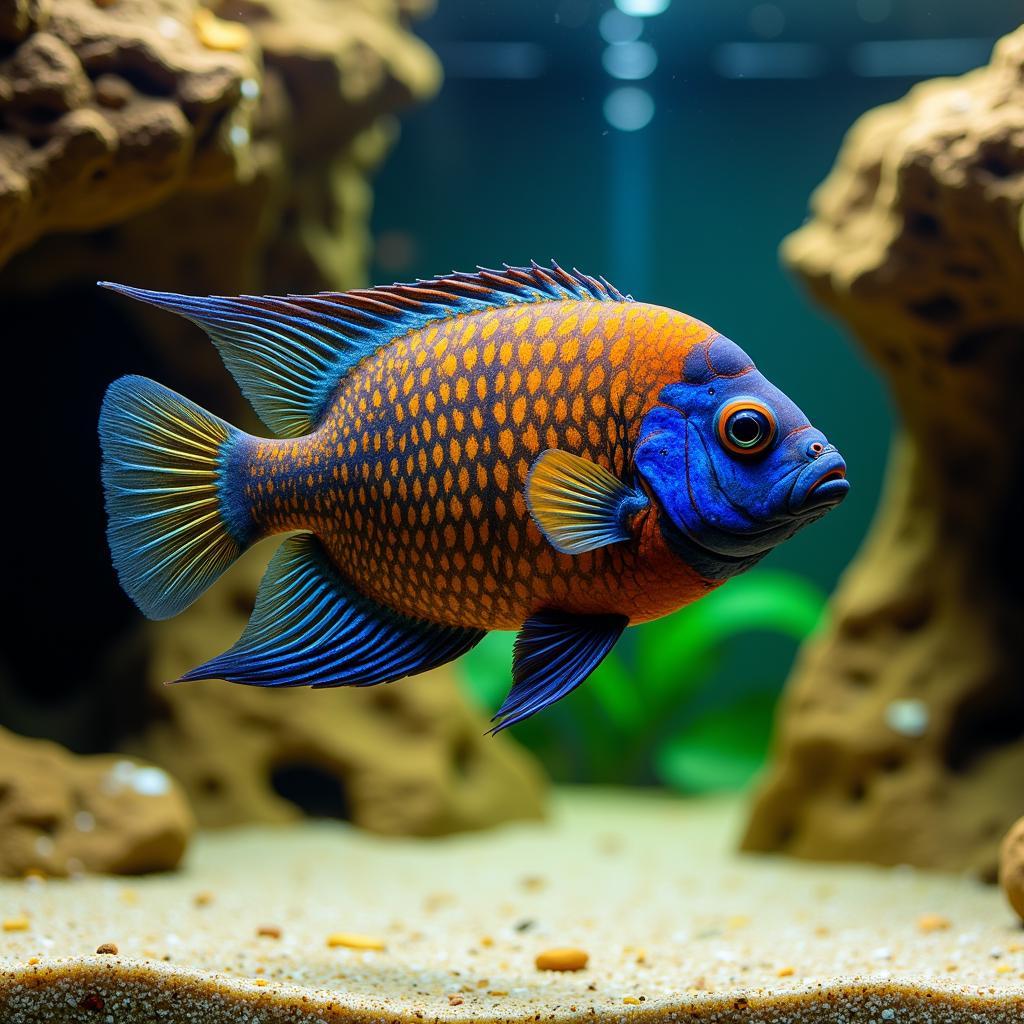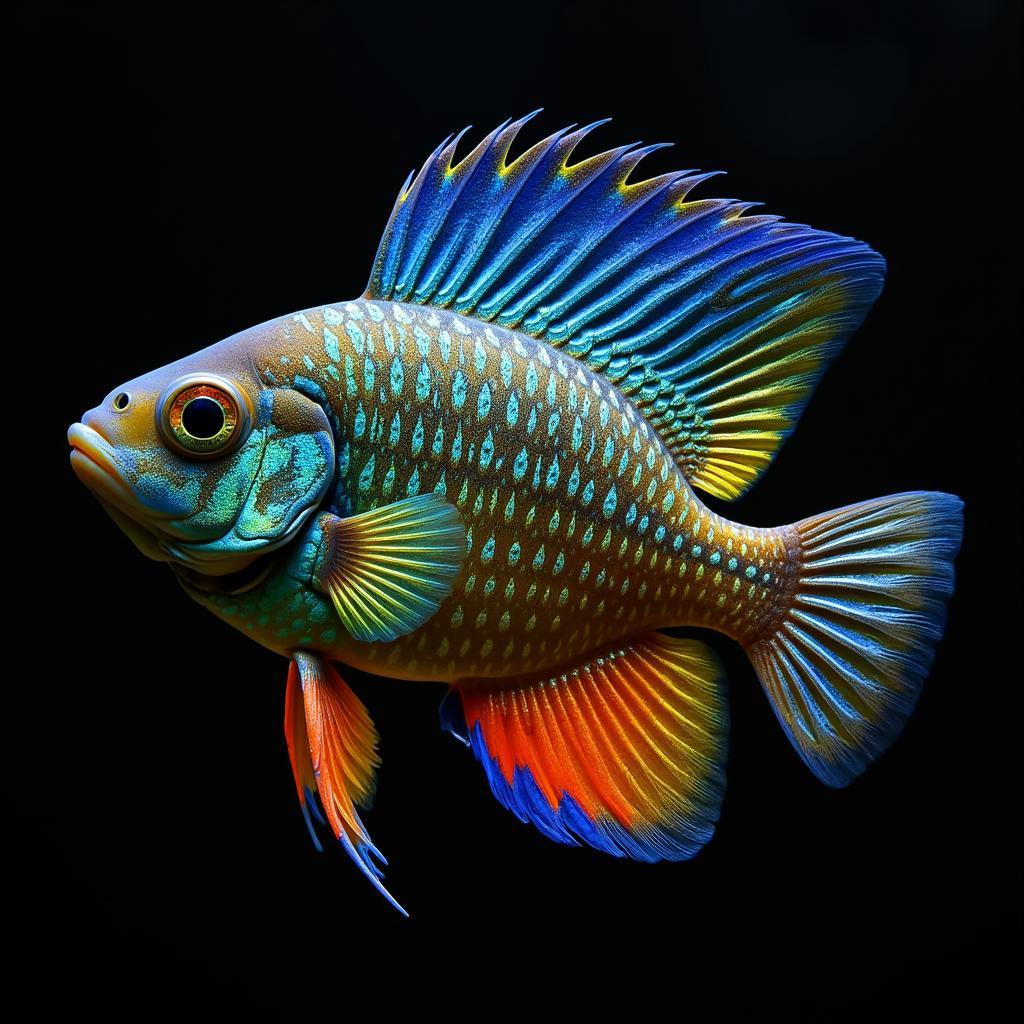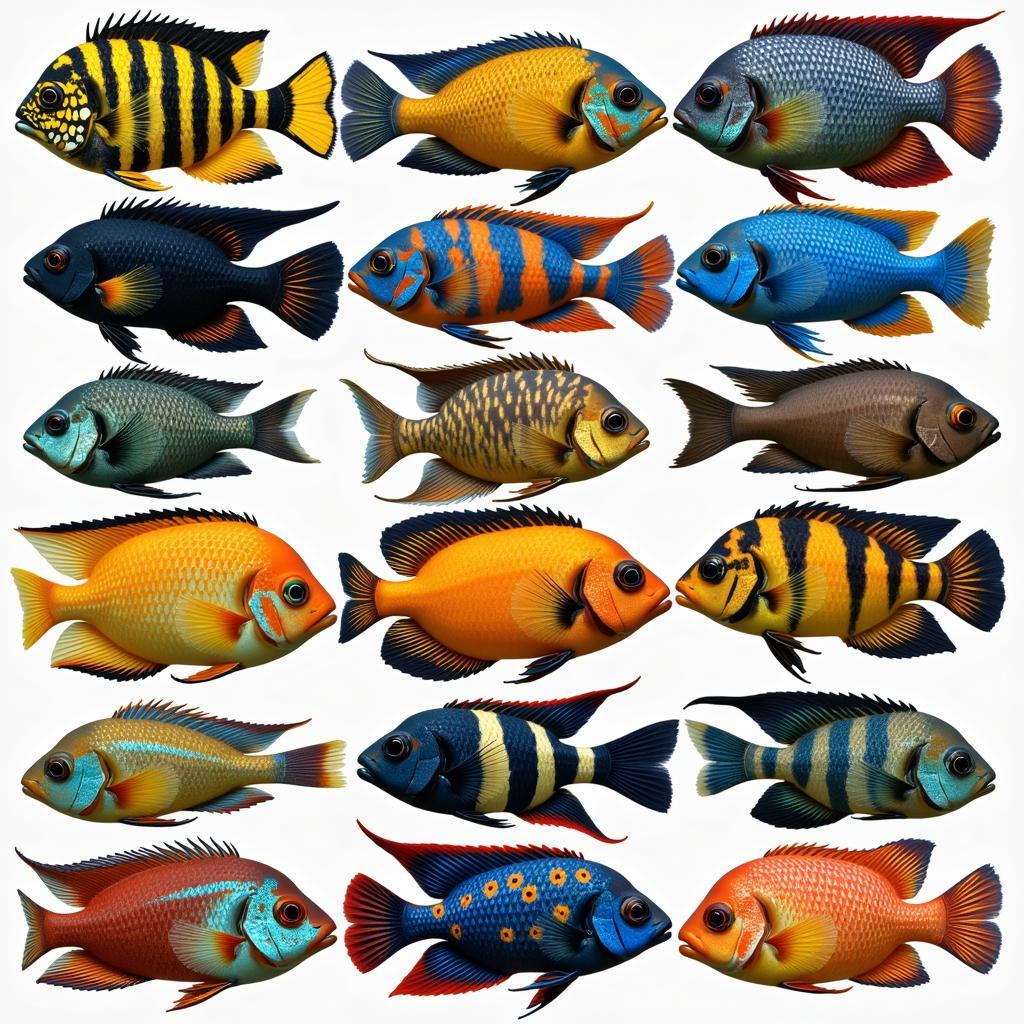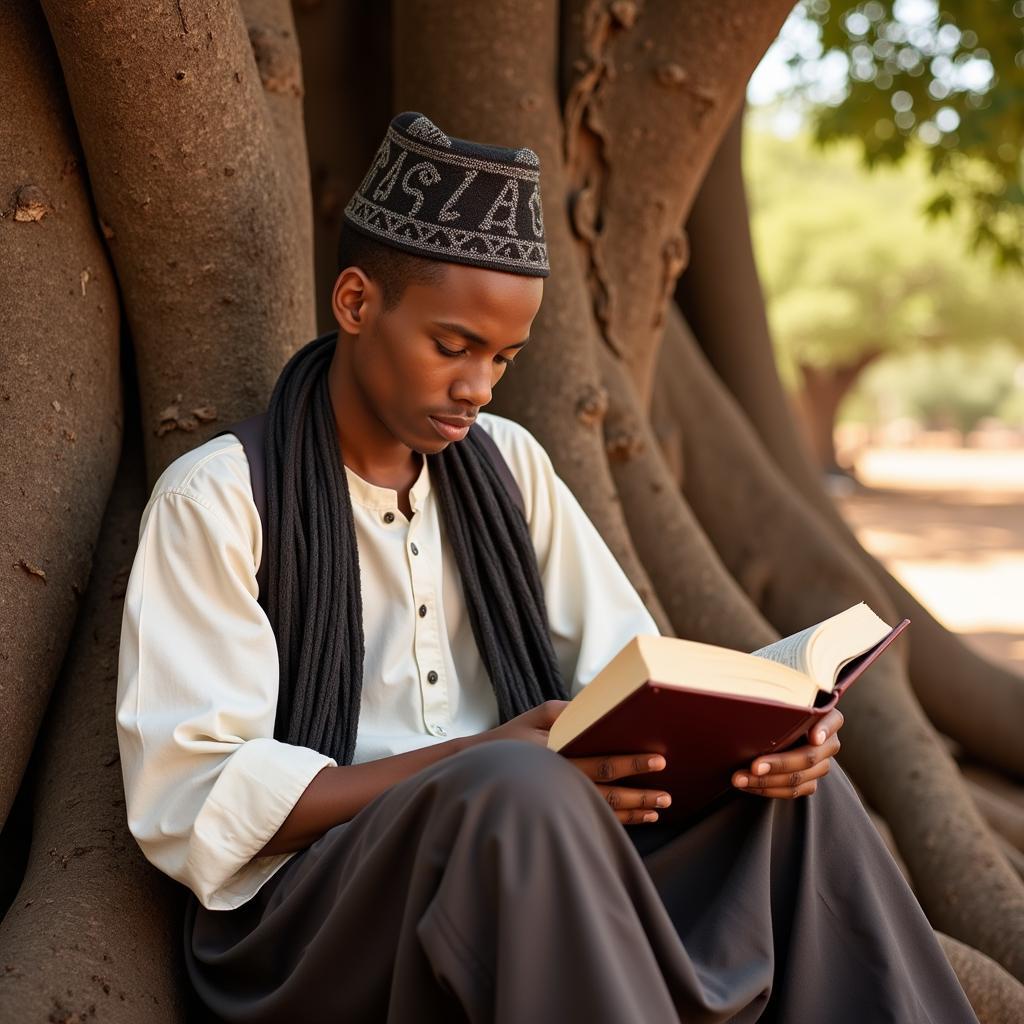The African Butterfly Peacock Cichlid: A Splash of Color in Your Aquarium
The African Butterfly Peacock Cichlid (Aulonocara sp.) is a captivating freshwater fish renowned for its vibrant colors and graceful movements. These stunning creatures, native to Lake Malawi in East Africa, are a popular choice among aquarium enthusiasts, adding a touch of the exotic to any home. Let’s dive into the fascinating world of these beautiful cichlids.
Understanding the African Butterfly Peacock Cichlid
African butterfly peacock cichlids are a group of species within the Aulonocara genus. Their name, “butterfly,” comes from the males’ striking, often iridescent, markings, which resemble the wings of a butterfly. “Peacock” refers to the elaborate displays the males put on to attract females, much like a peacock showing off its feathers. These fish are relatively peaceful compared to other African cichlids, making them a suitable option for community tanks with careful planning.
Habitat and Water Conditions
In their natural habitat, Lake Malawi, African butterfly peacock cichlids inhabit the sandy, rocky bottom areas. They prefer alkaline water with a pH range of 7.8-8.6 and a temperature between 75-82°F (24-28°C). Replicating these conditions in your aquarium is crucial for their health and well-being. A spacious tank with plenty of rocks and caves for hiding and spawning is essential. Choosing the right African fish tank is crucial.
 African Butterfly Peacock Cichlid in a well-maintained aquarium.
African Butterfly Peacock Cichlid in a well-maintained aquarium.
Diet and Feeding
African butterfly peacock cichlids are primarily carnivores, feeding on small invertebrates and crustaceans in the wild. In the aquarium, they thrive on a diet of high-quality cichlid pellets, supplemented with live or frozen foods like brine shrimp and bloodworms. Overfeeding can lead to health issues, so it’s best to feed them small amounts several times a day. What are some good African fish for fish tank?
Behavior and Social Interactions
Though relatively peaceful, male African butterfly peacock cichlids can become territorial, especially during breeding season. Keeping a single male with several females in a spacious tank is recommended to minimize aggression. They are generally compatible with other peaceful African cichlids male or female, but avoid housing them with aggressive species.
Breeding African Butterfly Peacock Cichlids
Breeding these cichlids can be a rewarding experience. The male will dig a small pit in the substrate and entice a female to lay her eggs. After fertilization, the female will incubate the eggs in her mouth for several weeks. Providing a suitable environment with plenty of hiding places and the right water parameters is crucial for successful breeding.
 Male African Butterfly Peacock Cichlid displaying its vibrant colors to attract a female.
Male African Butterfly Peacock Cichlid displaying its vibrant colors to attract a female.
Common Questions About African Butterfly Peacock Cichlids
What is the African cichlid lifespan? They can live for 5-8 years with proper care.
What are some popular African cichlid names? Popular names reflect their colors or patterns.
 Variety of African Butterfly Peacock Cichlids showing different color morphs.
Variety of African Butterfly Peacock Cichlids showing different color morphs.
Conclusion
The African butterfly peacock cichlid is a stunning addition to any aquarium. By understanding their needs and providing the right environment, you can enjoy the beauty and grace of these fascinating fish for years to come. Remember to choose tank mates wisely and research specific species requirements for the best possible outcome with your African butterfly peacock cichlid.
FAQ
- What size tank do African butterfly peacock cichlids need? A minimum of 55 gallons is recommended.
- Are they aggressive? Males can be territorial, especially during breeding.
- What do they eat? A diet of cichlid pellets and occasional live or frozen food.
- How can I tell the difference between males and females? Males are typically more colorful and have longer fins.
- How long do they live? With proper care, they can live 5-8 years.
- What are the ideal water parameters? pH 7.8-8.6, temperature 75-82°F (24-28°C).
- Can I keep them with other fish? Yes, with other peaceful cichlids in a large enough tank.
Need assistance? Contact us 24/7: Phone: +255768904061, Email: kaka.mag@gmail.com or visit us at Mbarali DC Mawindi, Kangaga, Tanzania.
